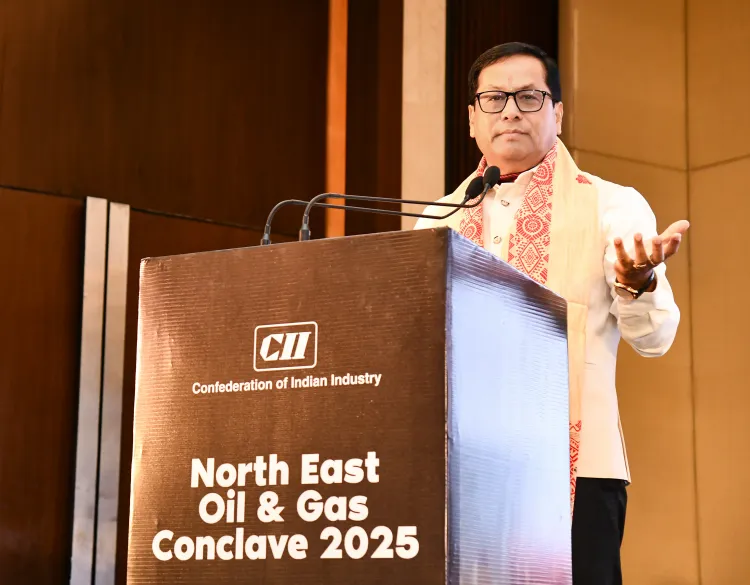Will the New Fertiliser Plant in Assam Achieve 12.5 Lakh MT Annual Capacity?

Synopsis
Key Takeaways
- A new fertiliser plant in Assam will enhance local agriculture.
- Investment of over Rs 10,000 crore is set for the project.
- The plant will achieve a production capacity of 12.5 lakh MT annually.
- Job creation and infrastructure development are key benefits.
- Exports to Bhutan and Myanmar will be enabled.
New Delhi, Nov 24 (NationPress) A groundbreaking new facility in Assam is set to revolutionize Namrup into a significant production hub, boasting an impressive annual capacity of 12.5 lakh metric tonnes (MT) of fertiliser, backed by an investment exceeding Rs 10,000 crore, as outlined by government officials.
Union Minister Sarbananda Sonowal visited the Namrup Fertiliser Plant (BVFCL) located in Dibrugarh district, where he assessed vital components of the current facility alongside ongoing and future expansion projects.
He emphasized that under the visionary guidance of Prime Minister Narendra Modi, “our Namrup Fertiliser Plant, a source of pride for Assam, is receiving a transformative upgrade with the establishment of a new brownfield Ammonia-Urea complex, supported by an investment of over Rs 10,000 crore.”
This ambitious project aims to boost agricultural productivity, create numerous job opportunities, and fortify industrial infrastructure. Sonowal noted that it would play a pivotal role in positioning the Northeast as a major productive region in Southeast Asia.
Brahmaputra Valley Fertiliser Corporation Limited (BVFCL), recognized as the oldest fertiliser manufacturing unit in the northeast, has been catering to the needs of local farmers since its establishment.
To further augment its capacity, a fourth plant is planned to be built at the Namrup site.
“With backing from the Government of India, the new plant is projected to be operational within the next five years, achieving a production capacity of 12.5 lakh metric tonnes per annum,” mentioned the minister.
Sonowal stated that this initiative addresses a long-awaited aspiration of the Northeast’s populace and will significantly aid national growth.
Furthermore, the expansion is set to transform the facility into a vital production center, ensuring that the fertiliser demands of farmers across the Northeast are met while also facilitating exports to neighboring countries like Bhutan and Myanmar.
Additional markets in West Bengal and Bihar will also benefit from this enhanced capacity, according to an official statement.









